Liposuction in Abu Dhabi
Search and Compare the Best Clinics and Doctors at the Lowest Prices for Liposuction in Abu Dhabi
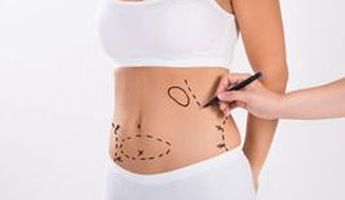
Find the best clinics for Liposuction in Abu Dhabi
With Medijump you can browse 4 facilities offering Liposuction procedures in Abu Dhabi. The cheapest price available is $1,195 in Abu Dhabi
Liposuction in United Arab Emirates
Price: $ 1,195
Liposuction in Abu Dhabi
Price: $ 1,195
Liposuction in Dubai
Price: $ 3,585
Ukraine offers the best prices Worldwide
Price: $ 120
From 136 verified reviews
Junaid Tehseen, 22 September 2020
Visited recently but I must say I experienced a true 5 star experience which I have never expected in a Hospital ,, I needed an assistant, Mr Shady Soleiman one of the manager in hospital met me assisted me with every thing and made my life so easy in a very difficult situation Thank you and every one
From 37 verified reviews
Mcjaydele Mclaine, 18 September 2020
I had a very positive experience with all of the Nurses and staff at Ahalia Hospital-Mussafah. I highly recommend Dr. Saumya my gynecologists she is very professional and amazing!
From 65 verified reviews
Mutasim Goraish, 06 September 2020
It's a good place and number one for the medical clinic in JCC it's like ahotea Clinic 😀
Al Salama Hospital, located in Al Zahiyah, Abu Dhabi, United Arab Emirates offers patients Liposuction procedures among its total of 98 available procedures, across 16 different specialties. The cost of a Liposuction procedure starts from ฿43,000, whilst the national average price is approximately ฿147,606. There are many specialists available at the Hospital, with 10 in total, and they are not accredited by any recognized accreditations institutes
- Home
- United Arab Emirates
- Abu Dhabi
Compare Before & After Photos of _procedure_photos.phpLiposuction
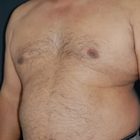
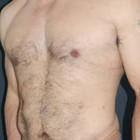
Front view
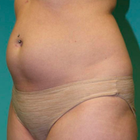
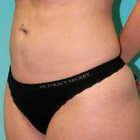
Half-side view
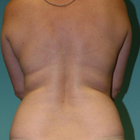
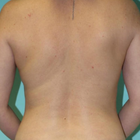
Full-side view
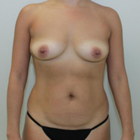

Front view
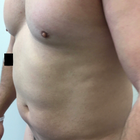
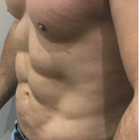
Half-side view
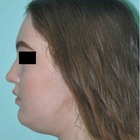
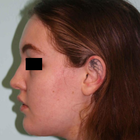
Full-side view
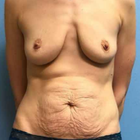

Front view
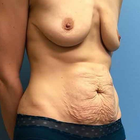

Half-side view
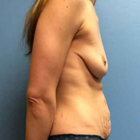

Full-side view
WHY US?
At Medijump, we're making medical easy. You can search, compare, discuss, and book your medical all in one place. We open the door to the best medical providers worldwide, saving you time and energy along the way, and it's all for FREE, no hidden fees, and no price markups guaranteed. So what are you waiting for?

Free

Best Price

Widest Selection

Risk-Free
What you need to know about Liposuction in Abu Dhabi?

Liposuction is a cosmetic surgery that “sucks” out fat from areas that are hard to lose through a healthy diet and exercise, while liposculpture is the shaping of the skin back to its desired shape. Both are done in conjunction with one another at the same time. Most areas can be treated. Traditionally the most popular areas to treat are the stomach/abdomen, chin and neck, love handles, arms, and inner and outer thighs. Becoming more popular are the knees, calves and ankles, all with very successful results.
While liposuction can permanently remove fat cells and alter your body shape, it should not be viewed as a quick fix for individuals who are significantly overweight. The procedure works best for those who have already lost some weight themselves and are close to their ideal weight but need help tackling stubborn areas of fat in problem areas.
What is the cost of Liposuction in Abu Dhabi?
When you're thinking about liposuction in Abu Dhabi, one of the first things you probably wonder about is the cost. Here's the thing: the price isn't the same for everyone. It hinges on a few details like how many parts of your body you’re getting treated, how complex the treatment is, and the professional fee of your doctor. Costs for anaesthesia and the use of the surgical facility are also added to the bill. It's vital to remember, too, that because liposuction is often carried out for aesthetic reasons, normal health insurance might not cover it.
Can Liposuction be used as a weight-loss method?
Unwanted fats are very hard to get rid of especially if you are not a fan of exercise or diet. Liposuction, also known as Lipoplasty, liposculpture suction, lipectomy or simply lipo, basically eliminates unwanted fats by suctioning it away. Despite the growing trend of non-invasive fat reduction treatments, liposuction is still the leading procedure to remove stubborn fat cells.
Liposuction permanently removes fat cells and enhances the shape of your body. A plastic or dermatologic surgeon usually performs this type of procedure on the patient’s belly, hips, thighs, buttocks, arms, back or face to improve their shape. Furthermore, liposuction can be done together with other plastic surgeries such as facelifts, breast reductions, and tummy tucks.
This treatment procedure is particularly used for aesthetics, mainly to improve a person’s appearance. In most cases, maintaining and achieving such positive results will depend on your lifestyle.
What does a Liposuction Procedure Involve?
Before you have the treatment, a series of tests are required to ensure if you are fit for the surgery. You will also need to sign a consent form to confirm that you are fully aware of the risks, benefits and possible alternatives to the procedure.
You will likely be put under using general anesthesia, which can last for 1 to 4 hours. An epidural can also be used for procedures on the lower part of the body, although this is becoming increasingly unpopular now. Alternatively, you may be given local anesthesia if the procedure will be on small areas of your body. You may be asked to stand up during the procedure to ensure proper fat removal, but you will not feel any pain.
Tiny incisions will be made in the areas of interest through which a cannula can fit. This thin tube-like device is connected to a vacuum, capable of suctioning the fat from within your body. There are a few common techniques used, including Laser-Assisted or SmartLipo, UAL (Ultrasound-Assisted Lipo) or the most popular technique, Tumescent Lipo - this involves the pre-injection of a saline solution to help separate the fat from the blood, so less blood is removed. You'll discuss the best option with your surgeon before confirming what type of Liposuction is best for you.
How Long Should I Stay in Abu Dhabi for a Liposuction Procedure?
Generally, patients who have received general anesthesia will be required to spend the night in the hospital (in-patient). Patients, who have had local anesthesia, may be able to leave the hospital on the same day.
After the operation, you will have to wear support bandages (support corset, bandages or elasticated support) whilst healing. Expect some pain, swelling and bruising during the following days and weeks. Your surgeon will prescribe medication to help control your pain and antibiotics to reduce the risk of infection. Furthermore, your stitches may be removed during your follow-up appointment with your surgeon. You should expect to stay in Abu Dhabi for about a week post-op to allow for the initial recovery and check-up appointments, which will include the removal of stitches.
What's the Recovery Time for Liposuction Procedures?
Numbness in the specific area of your body where the fat was removed is to be expected for the first couple of weeks, usually, this will improve after 6 to 8 weeks. You may also need to wait a few days before going back to work. As for your normal activities, especially exercise, you may have to wait a few weeks before resuming.
Overall, the recovery time may vary from patient to patient. In most cases, patients can return to light activities within 2 to 3 days and are also able to go back to work after two weeks. As for the results, you may see visible results after 3 to 4 weeks, however, it can take several months before you see the final outcome.
What sort of Aftercare is Required for Liposuction Procedures in Abu Dhabi?
Just like any other cosmetic surgery, following your surgeon’s aftercare instructions is vital in achieving and maintaining the best results. If the procedure was done above your waistline, you may be advised to sleep propped on pillows to have elevation on the specific area. This helps drain the fluids and prevent them from pooling. Furthermore, applying cold compress on a certain area where the procedure was performed is highly recommended, this will reduce inflammation and bruising especially during the first few days.
What's the Success Rate of Liposuction Procedures in Abu Dhabi?
Liposuction remains one of the most popular cosmetic surgeries with a success rate of 85%, offering patients the enhanced body shape they've been craving. However, just like any other surgeries, it also comes with possible risks. Complications vary and are dependent on the procedure is as well as your surgeon’s skills. Possible risks and complications include:
- Severe bruising
- Inflammation
- Blood clot forms in veins, causing inflammation and complications (Thrombophlebitis)
- Kidney or Heart problems - changes in the body's fluid levels during the procedure may cause kidney or heart problems.
- Pulmonary embolism - when fat gets into your blood vessels and travels to your lungs, eventually, blocking your lungs.
Are there Alternatives to Liposuction Procedures in Abu Dhabi?
CoolSculpting – is a fat freezing liposuction alternative. This is more suited to people who are close to their target weight but still have unwanted pockets of fat. Coolsculpting is a fat-freezing procedure that crystalizes your fat cells until they break apart painlessly.
Ultrashape - a non-invasive procedure that doesn’t require the need for anesthesia. This treatment procedure will make use of a body sculpting device that vaporizes fat cells within the targeted area with waves of ultrasound energy. Fat cells are permanently flushed out of your body, giving you a more natural-looking fat loss.
How does Liposuction differ from CoolSculpting and Vaser liposuction in terms of technique?
Liposuction vs Vaser Liposuction
Like traditional liposuction, the purpose of Vaser liposuction is to change the contours and shape of the body by removing persistent fat deposits. The word Vaser is actually an acronym for Vibration Amplification of Sound Energy at Resonance. This specialized ultrasound technology breaks down the fatty tissues using ultrasonic frequency waves, which is why it's often referred to as Ultrasonic Liposuction or Ultrasound Liposuction.
Liposuction vs CoolSculpting
CoolSculpting is the new non-invasive, freezing method used to also change the body contours and shape, however, this method does not require the use of a cannula so there is no damage to the overlying skin. Instead, it involves the controlled application of cooling localized fat deposits, which are then expelled from the body through the kidneys.
How safe is Liposuction in Abu Dhabi?
Liposuction, when performed in Abu Dhabi by a qualified and experienced plastic surgeon, is generally considered safe. The procedure has evolved significantly since its introduction, with advancements in technology and techniques contributing to its safety profile. Most liposuction procedures are performed without major complications, and patient satisfaction rates are high. However, as with any surgery, there is always an inherent risk.
It's crucial to have a detailed discussion with your surgeon regarding the safety of the procedure. The surgeon should be open about potential risks and complications, and explain how they would handle them should they arise. Factors such as your overall health, medical history and the area or the amount of fat being removed can influence the risks associated with liposuction.
What Should You Expect Before and After a Liposuction?
After your surgery, expect some swelling and discolouration in the areas where the fat was removed. To assist in healing and lessen swelling, you'll be given a snug garment to don. It is advisable to arrange for someone to take you home after the surgery and be with you for the initial day after the procedure. Though some changes will be noticeable soon after the surgery, the best results will take shape once the swelling has fully dissipated, which usually takes around 3-6 months. Regular check-ins with your surgeon are vital to ensure your recovery is progressing as expected.
As the wise saying goes, "Your waistline is your lifeline." Liposuction does remove fat cells for good, but weight gain post-procedure can cause the leftover fat cells to grow, potentially in different areas of your body. Therefore, a balanced diet and regular exercise are crucial for maintaining your new silhouette.
How Can I Prepare for Liposuction in Abu Dhabi?
Prepping for a liposuction surgery in Abu Dhabi? You've got this! Here are some absolutely essential steps you should follow for a smooth and successful procedure:
- Consultation: First things first. Have an in-depth consultation with your plastic surgeon. They'll assess your health status and discuss your goals. Taking this information into account, they'll provide some key instructions for you leading up to the surgery day.
- Healthy Lifestyle: In preparation for the procedure, it's of utmost importance to maintain a healthy lifestyle. Get in regular exercise. Eat balanced meals. Hydrate frequently. If you smoke, now is the time to quit. And hold off on alcohol. Your body will be on the fast track to healing, thanks to these healthy habits.
- Follow Instructions: Your surgeon will give you a set of preoperative instructions. Avoiding certain medications or supplements might be on the list. Stick to these guidelines religiously.
- Support Person: And lastly, on surgery day, make sure to have a trusted friend or relative by your side. Once the procedure is completed, you'll need a safe ride back home.
Whilst the information presented here has been accurately sourced and verified by a medical professional for its accuracy, it is still advised to consult with your doctor before pursuing a medical treatment at one of the listed medical providers
No Time?
Tell us what you're looking for and we'll reachout to the top clinics all at once
Enquire Now

Similar Procedures in Abu Dhabi
Prices Start From $31

Prices Start From $120

Prices Start From $120

Prices Start From $120

Prices Start From $120

Prices Start From $31

Prices Start From $120

Popular Procedures in Abu Dhabi
Prices Start From $111

Prices Start From $931

Prices Start From $76

Prices Start From $236

Recommended Medical Centers in Abu Dhabi for Liposuction

- Interpreter services
- Translation service
- Religious facilities
- Medical records transfer
- Medical travel insurance
- Health insurance coordination
- TV in the room
- Safe in the room
- Phone in the room
- Private rooms for patients available

- Interpreter services
- Translation service
- Religious facilities
- Medical records transfer
- Medical travel insurance
- Health insurance coordination
- TV in the room
- Safe in the room
- Phone in the room
- Private rooms for patients available

- Interpreter services
- Translation service
- Religious facilities
- Medical records transfer
- Medical travel insurance
- Health insurance coordination
- TV in the room
- Safe in the room
- Phone in the room
- Private rooms for patients available

- Interpreter services
- Translation service
- Religious facilities
- Medical records transfer
- Medical travel insurance
- Health insurance coordination
- TV in the room
- Safe in the room
- Phone in the room
- Private rooms for patients available

- Interpreter services
- Translation service
- Religious facilities
- Medical records transfer
- Medical travel insurance
- Health insurance coordination
- TV in the room
- Safe in the room
- Phone in the room
- Private rooms for patients available

- Interpreter services
- Translation service
- Religious facilities
- Medical records transfer
- Medical travel insurance
- Health insurance coordination
- TV in the room
- Safe in the room
- Phone in the room
- Private rooms for patients available
Liposuction in and around Abu Dhabi
About Abu Dhabi
Abu Dhabi is the capital city of the United Arab Emirates and the richest city in the country due to its oil fields. Abu Dhabi is an advanced but conservative cosmopolitan city. In 2018, the city was ranked as the safest city in the world with the lowest crime index of more than 300 cities.
Culture, adventures, shopping malls, to coastal beauty; Abu Dhabi has a lot to offer that will leave anyone in awe. The city is filled with opulent architecture, making the skyline of Abu Dhabi a captivating view.
Abu Dhabi is now developing to be the region’s leading medical tourism destination. The government is working continuously to establish a world-class healthcare system. The city targets patients from other Gulf Cooperation Council (GCC) Countries, Russia, China, and other parts of the world. Attracting top-quality doctors and a range of specialist services, Abu Dhabi focuses its procedures on cardiology, oncology, and executive screenings. A total of 16 public and private hospitals in Abu Dhabi offer a wide range of medical treatment with quality care. Cleveland Clinic Abu Dhabi, Ahalia Hospital Musafahl, and Burjeel Hospital are among the highest-regarded medical facilities in the city. The city attracts many medical tourists for the following reasons.
- Medical facilities with the highest standards and international accreditations.
- Treatment using cutting-edge technology.
- Medical interpreters who speak a range of languages.
- The best hospitality, at the hospital, and throughout the city.
Popular Areas in Abu Dhabi
With a beautiful mixture of ultramodern architecture and Islamic traditions, Abu Dhabi is packed with amazing attractions and exhilarating adventure.
- Sheikh Zayed Grand Mosque is the United Arab Emirates’ largest place of worship that attracts millions of tourists each year. The mosque is an architectural wonder, mesmerizing even to the little details. Tourists can choose to get a free one-hour guided tour to get the best insight into the religion and culture that surrounds the mosque.
- Louvre Abu Dhabi is an art and civilization museum that has been open since 2017. The museum is showcasing artworks from around the world. Apart from the artwork, the architecture of the museum is also breathtaking with a web-patterned dome that allows sunshine to filter through.
- Al-Ain Oasis is a UNESCO World Heritage Site. The oasis has only been open to the public recently. It is full of palms and mango trees. Al-Ain Oasis is home to a 3000-year-old falaj irrigation system, the oasis provides an insight into the history of Abu Dhabi inhabitants.
- Ferrari World is the perfect place for tourists who want to celebrate all things, Ferrari. People come to this indoor theme park to experience Formula Rossa, the world’s fastest roller coaster.
- Abu Dhabi Corniche is a beautiful clean beach with great views of turquoise waters and Abu Dhabi skyline that will not disappoint. Tourists can enjoy a day under the sun lounging on the beach, walk along Corniche Road, or admire the sunset.
Weather and Climate in Abu Dhabi
Abu Dhabi has a subtropical climate. The city enjoys sunny skies and hot temperatures throughout the year. Summer starts from May to September and the average temperature ranges between 38–42°C. During the hottest days, the temperature can get as high as 48°C. Winter starts from December to February, the average temperature is around 13-29°C. Rain mainly falls in winter.
The best time to visit Abu Dhabi is from November to April when the temperature is cooler and more pleasant.
Despite the heat in the summer, it is advised to always wear modest clothing as the locals do not welcome revealing or tight clothing. Lightweight and comfortable clothing are suitable most of the year.
Getting Around in Abu Dhabi
Abu Dhabi International Airport serves more than 30 airlines that connect the city to more than 60 countries in the world. Etihad Airways dominates the airport terminal spaces. Abu Dhabi International Airport mainly serves major airlines, although budget airlines such as Airblue Limited and IndiGo also operate flights.
Tourists can choose the airport taxis, buses, or hire a car to get to their destinations from the airport. Airport taxis cost around 75AED to 85AED for a trip to the city center. If you want to take the airport bus, purchase a Hafilat card from the vending machine at the airport terminal bus stop.
There are many ways to get around Abu Dhabi. Taxis are relatively cheap and metered; tourists can flag down the taxis or order through a call center. Abu Dhabi also has a city bus that operates on 14 routes between 6.00 am to 11.00 pm, most fares are 2AED. Hiring a car can be a good way of getting to many destinations as it offers more flexibility. If you’re in Corniche or Yas Island, hiring a bike is the best choice to explore these Islands.
The ever-changing street names and numbering system can be confusing, so it is advisable to describe the landmark you are looking for.
Tourist Visas in Abu Dhabi
Citizens of 60 countries can get a free entry visa (30 or 90 days depending on the country) upon arrival. Gulf Cooperation Council (GCC) citizens do not require a visa to enter Abu Dhabi. Citizens of other countries need to apply for a visa before entering Abu Dhabi through the nearest UAE embassy.
Tourists flying with Etihad Airways to Abu Dhabi International Airport can request a visa arrangement. All visitors are required to hold a passport valid for at least 6 months.
Additional Information
- Local Currency: The local currency is the United Arab Emirates dirham or Emirati Dirham (AED). 1 USD gets you around 3.7 AED. The notes are written in Arabic letters.
- Money & Payments: ATMs and currency exchanges are available across the city. Hotels, restaurants, and shops accept credit cards, debit cards, and cash. Tipping is common, but not expected. Tipping a hotel and restaurant staff is at your discretion. Many high-end restaurants may add a service charge of around 10% and a tourism levy of around 6%.
- Local Language: Arabic is the official language, but English is widely spoken especially in the city center. Road and shop signs are written in Arabic and English.
- Local Culture and Religion: The culture in Abu Dhabi is deeply rooted in Arabia’s Islamic Tradition. Islam is the official religion but people can freely practice their religion as long as they don’t interfere with Islam.
- Public Holidays: Ramadhan is hugely celebrated with the biggest festivals and the city is beautifully decorated. It is important to remember that during Ramadan, drinking, eating, and smoking at fasting hours (daylight) is illegal. Nightclubs are closed for the whole month. Other public holidays are the Islamic New Year, the Prophet’s Birthday, the King’s Coronation Day, Diwali, and Chinese New Year.
Popular Searches
- Plastic Surgery in Thailand
- Dental Implants in Thailand
- Hair Transplant in Thailand
- Breast Augmentation Thailand
- Gastric Sleeve in Thailand
- Gender Reassignment Surgery in Thailand
- Laser Hair Removal in Bangkok
- Botox in Bangkok
- Dermatology in Bangkok
- Breast Augmentation in Bangkok
- Coolsculpting in Bangkok
- Veneers in Turkey
- Hair Transplant in Turkey
- Rhinoplasty in Turkey
- Stem Cell Therapy in Mexico
- Rhinoplasty in Mexico
- Liposuction in Mexico
- Coolsculpting in Tijuana
- Rhinoplasty in Korea
- Scar Removal in Korea
- Gastric Sleeve in Turkey
- Bone Marrow Transplant in India
- Invisalign in Malaysia
- Plastic Surgery in the Dominican Republic
- Tummy Tuck in the Dominican Republic
- Plastic and Cosmetic Surgery in Poland
- Rhinoplasty in Poland
- Hair Implant in Poland
- Dental Implants in Poland
- IVF in Turkey



